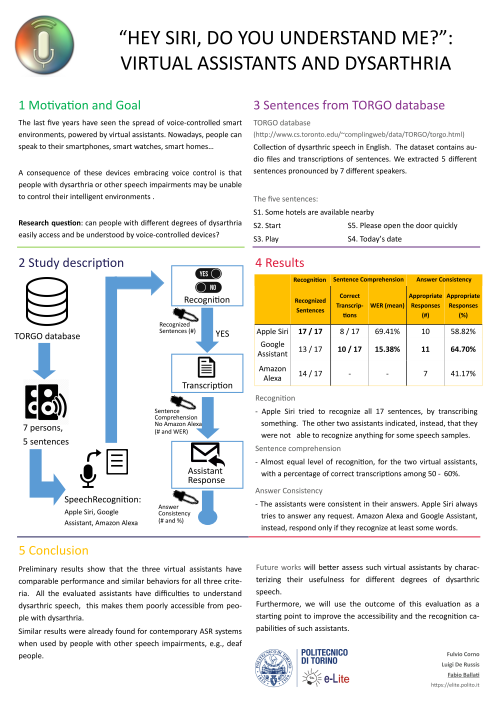On June 26, in the context of the 7th International Workshop on the Reliability of Intelligent Environments (WoRIE 2018) in Rome, Fabio Ballati presented his work "Hey Siri, do you understand me?" Virtual assistants and dysarthria in the poster session.
Voice-activated devices are becoming common place: people can use their voice to control smartphones, smart vacuum robots, and interact with their smart homes through virtual assistant devices like Amazon Echo or Google Home.
The spread of such voice-controlled devices is possible thanks to the increasing capabilities of natural language processing, and generally have a positive impact on the device accessibility, e.g., for people with disabilities. However, a consequence of these devices embracing voice control is that people with dysarthria or other speech impairments may be unable to control their intelligent environments, at least with proficiency.
This paper investigates to which extent people with dysarthria can use and be understood by the three most common virtual assistants, namely Siri, Google Assistant, and Amazon Alexa. Starting from the sentences in the TORGO database of dysarthric articulation, the differences between such assistants are investigated and discussed. Preliminary results show that the three virtual assistants have comparable performance, with an accuracy of the recognition in the range of 50-60%.
More information:
- Paper (Open Access at IOS Press)
- Poster (PDF)
- Paper at IRIS repository
- DOI: 10.3233/978-1-61499-874-7-557


